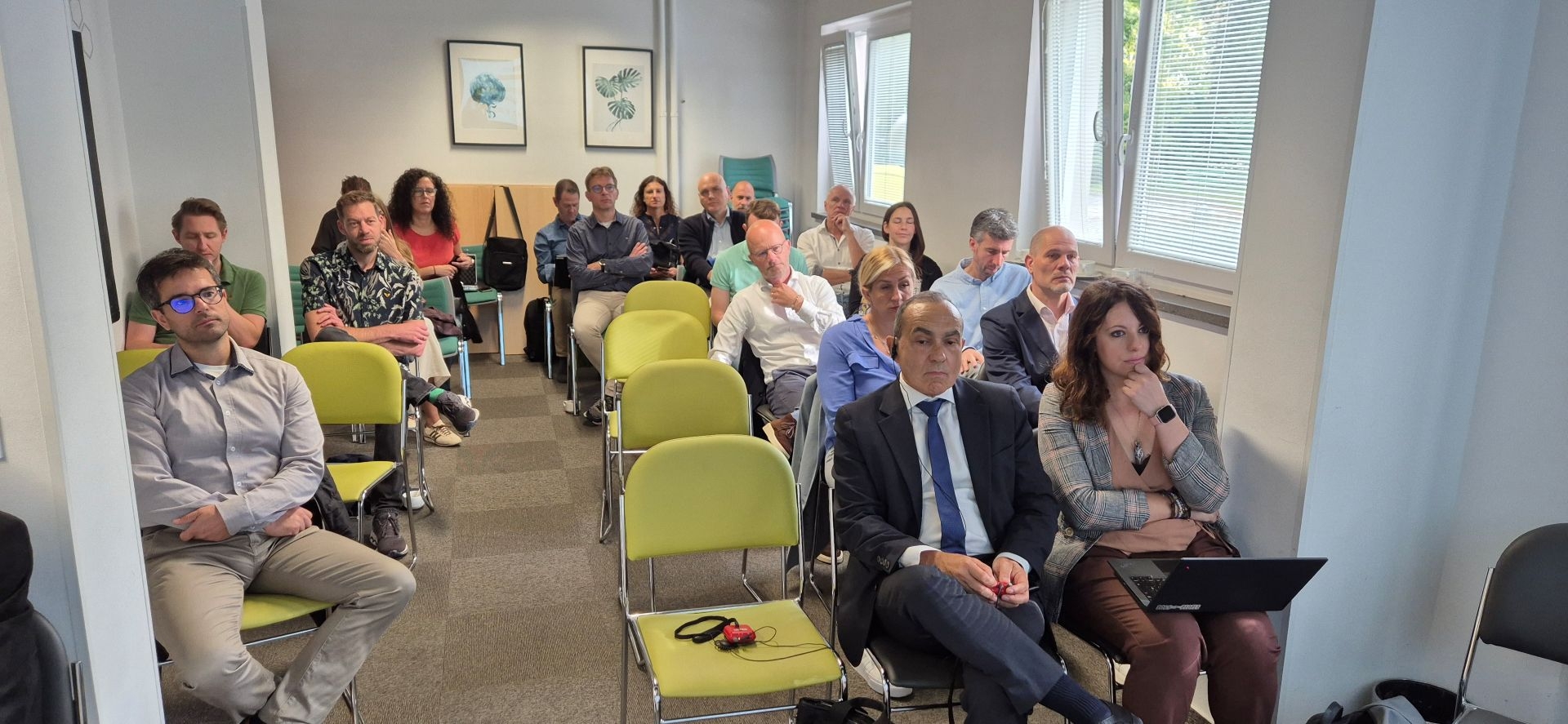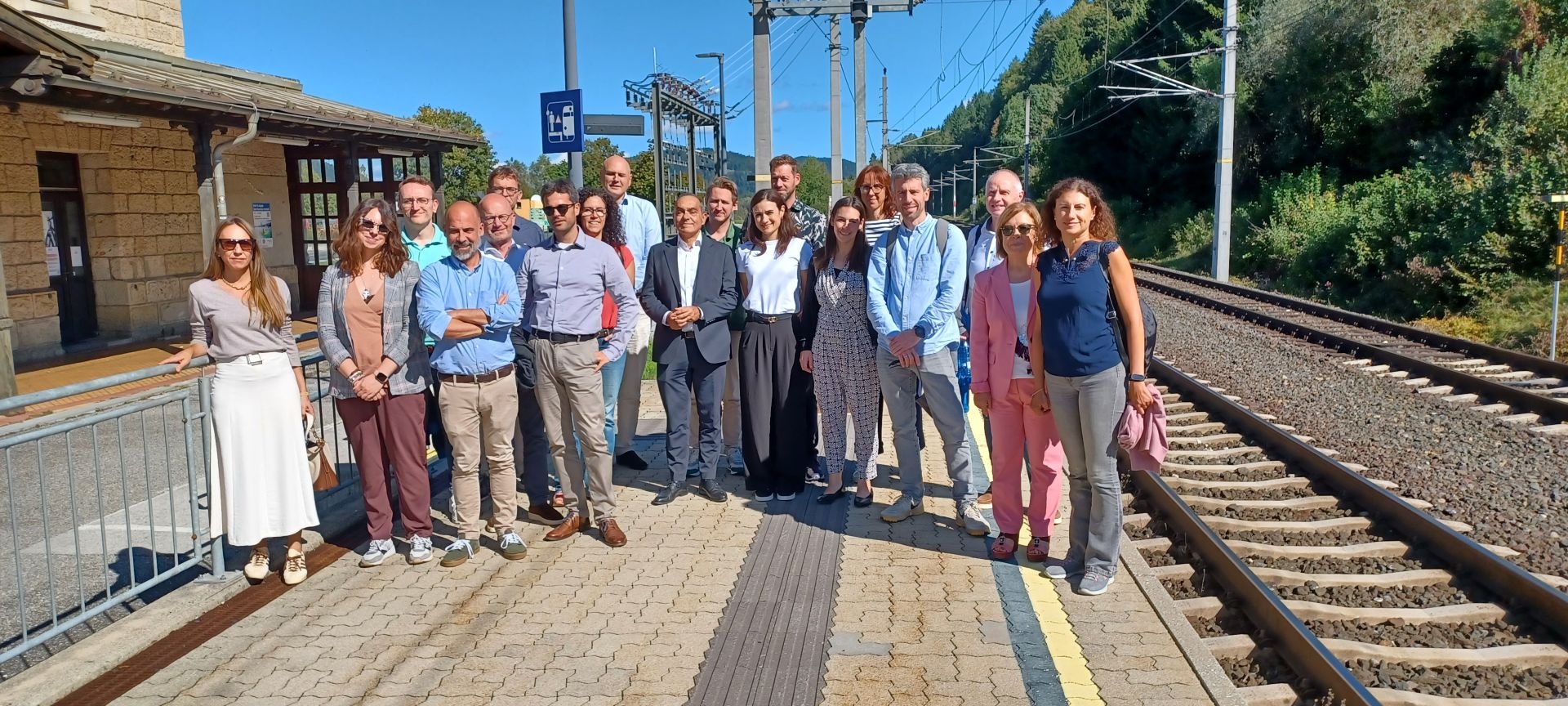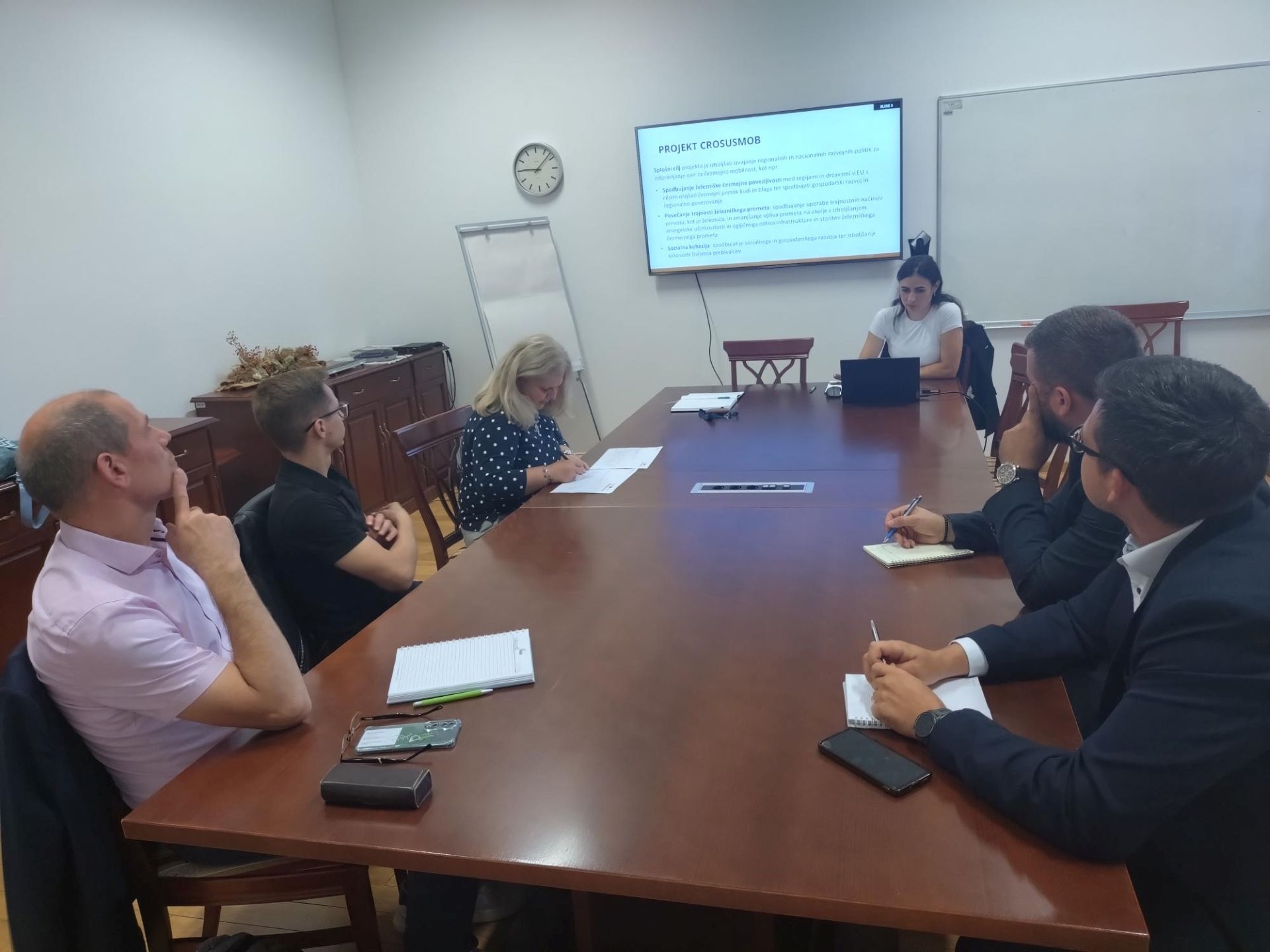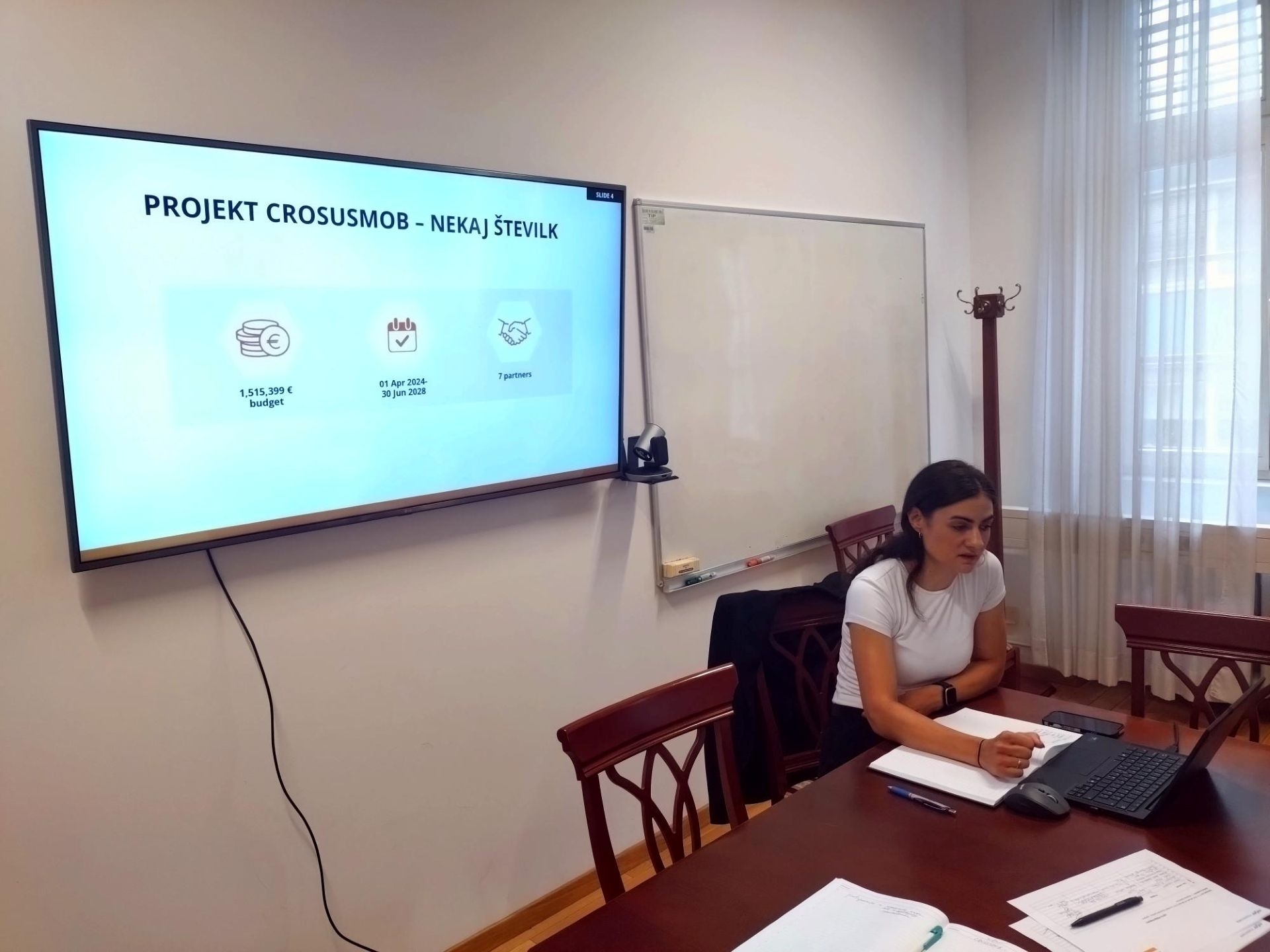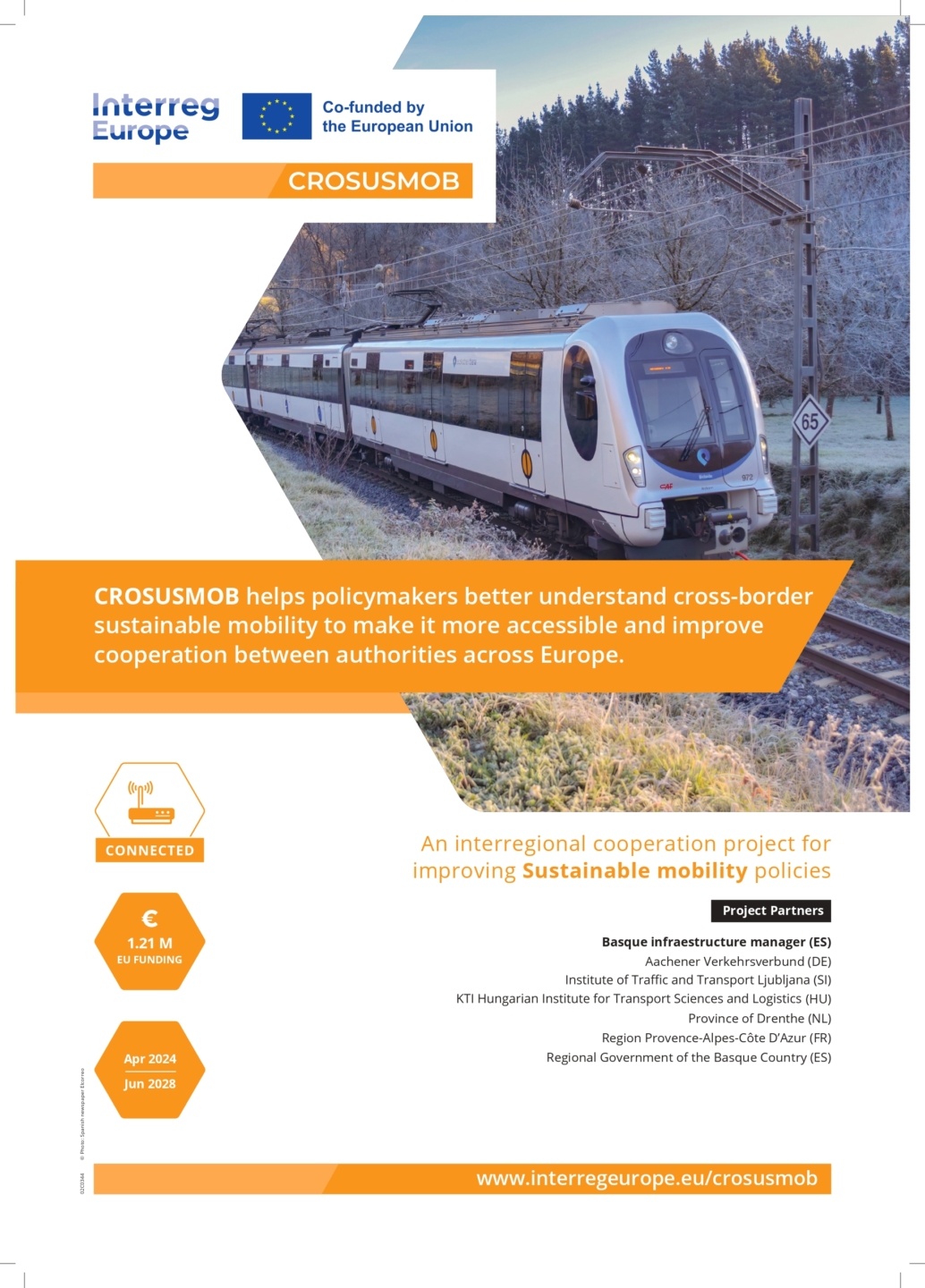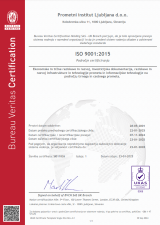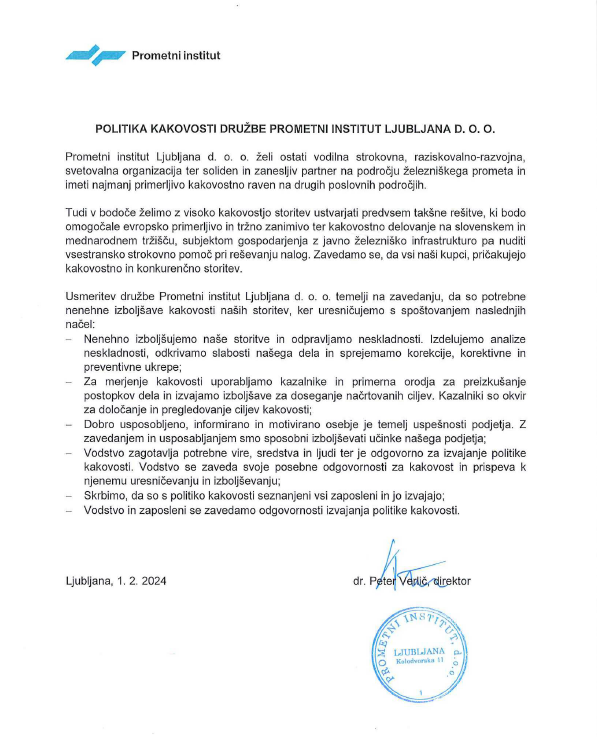Acronym: CROSUSMOB
Project budget: 1.515.399,00 EUR
Budget PI: 150.000,00 EUR, of which 80% is funded by the ERDF
Project duration: 1.4.2024 – 30.6.2028
Programm: Interreg Europe
Additional information: https://www.interregeurope.eu/crosusmob
Project partners:
Regional Government of the Basque Country https://www.euskadi.eus/inicio/
Aachener Verkehrsverbund https://avv.de/de/
Province of Drenthe https://www.provincie.drenthe.nl/
Institute of Traffic and Transport Ljubljana https://prometni-institut.si/
KTI Hungarian Institute for Transport Sciences and Logistics https://www.kti.hu/en
REGION PROVENCE-ALPES-CÔTE D’AZUR https://www.maregionsud.fr/
Euskal Trenbide Sarea (ETS) https://www.ets-rfv.euskadi.eus/inicio/
The EU aims to be climate-neutral by 2050, an objective arisen from the European Green Deal and in line with commitments under the Paris Agreement.
Public transport has its specific role in the cohesion of regions and countries trains are the backbone (TEN-T), aiming to connect the main urban centres; urban buses and trams provide connection within the main urban contexts; and, regional trains and buses increase the accessibility of remote areas.
These three levels of service cooperate to cover three complementary scales: inter-regional, provincial and urban in a sustainable way.
This approach is crucial, as it tries to keep up with the versatility of the car, which often allows users to leave any place, even remote, and reach any city, region or foreign country, in their own way. This kind of competition becomes much more difficult on a crossborder (CB) scale, where more political, technical and managerial difficulties arise.
The challenge of long-distance and CB public transport is based on the need to offer competitive door-to-door solutions in regional contexts based on the knowledge and best practices among partners.
The project has the challenge to increase the CB transports, only 7% of rail passenger traffic is CB and between 2001 and 2019 there was a 1 % increase in total CB services.
The project overall objective is to improve local, regional and national policies to tackle the CB mobility barriers.
Project sub-objectives:
- To embed CB transport strategies in the local, regional and national strategies so that they reflect potential and needs.
- To increase CB travellers as active players in the development of new Sustainable, climate resilient, intelligent and intermodal transport.
- To make sustainable transport an easy option( Appropriate pricing, timetable, connections).
- To ensure sufficient availability of trains, rail coaches and locomotives, accelerating infrastructure modernisation, digitalisation, and interoperability.
Policy:
The Slovenian Transport Development Strategy (STDS) 2030 positions the transportation sector as a key priority for national development. However, the current policy instrument exhibits significant gaps in addressing cross-border mobility. While the Strategy recognizes the importance of cross-border connections for border regions' growth, it lacks a comprehensive framework and concrete measures to develop such links at the national level.
Despite challenges, Slovenia's regulatory framework does provide a mechanism for financing cross-border public passenger transport services. Strengthening this instrument and aligning it with broader strategic goals is crucial. A revision of the STDS is necessary to integrate cross-border public transport into its measures and align it with updated national climate objectives under the National Energy Plan 2030 and the Alternative Fuels Strategy. Enhanced cross-border public transport services could significantly contribute to sustainable transport and help achieve Slovenia’s climate goals.
Past Events
First Field visit in the Basque Country
The Interreg CROSUSMOB field visit provided valuable insights into cross-border mobility in the Basque Country. Over two days, participants explored best practices, innovative solutions, and collaborative transportation projects. Day one began in Bilbao with an overview of the Basque railway system, followed by a visit to Donostia-San Sebastián’s Atocha station to examine intermodality. After lunch in Irun, discussions at Hendaye station focused on cross-border interoperability. Day two featured a methodology seminar, peer review, and a thematic workshop, concluding with a steering group meeting to align future actions. This visit combined hands-on learning with strategic planning to advance regional mobility goals.
Second study visit in Aachen, Germany
As part of a European cooperation project, the AVV (Aachener Verkehrsverbund) hosted 23 mobility experts from various border regions across Europe. These experts, hailing from Slovenia, Spain, Hungary, France, and the Netherlands, are partners in the "CROSUSMOB" project alongside the AVV and the Euregio Meuse-Rhine. "CROSUSMOB," which stands for "Fostering Cross-Border Sustainable Mobility," is funded by the Interreg Europe programme and led by the Basque railway company ETS. The project's goal is to share experiences and solutions for challenges in cross-border public transport. This exchange allows partners to utilize proven approaches from other regions, saving both time and financial resources. For instance, the AVV's insights on developing interoperable ticketing across borders were particularly valuable to all participants. During the two-day visit to the Euregio Meuse-Rhine, the guests received a comprehensive overview of the region's cross-border connections. The City of Aachen, the Province of Limburg, Arriva Netherlands, and go.Rheinland were among the programme's contributors. Highlights included a trip on the three-country train and a visit to the government building in Maastricht.
Third study visit in Ljubljana, Slovenia
Ljubljana, 17–18 September 2025 – Project partners and stakeholders gathered in Ljubljana for a two-day field visit focused on enhancing cross-border passenger transport. Hosted by the Institute of Traffic and Transport Ljubljana, the event featured expert presentations and a hands-on journey on the new rail link between Slovenia and Austria.
Day one included insights from Slovenian Railways, DUJPP, and EGTC Future Paths, with a spotlight on the NUTSHELL project’s Action Pilot aimed at better timetable coordination between Slovenia and Austria. Participants experienced the new Stadler train connection across the Karavanke line, highlighting improved mobility between Ljubljana and Villach.
Day two focused on partner discussions, with updates from the Institute, KTI, and the project’s Lead Partner. The visit concluded with a shared commitment to advancing sustainable and accessible cross-border transport across Europe.
Stakeholder meetings
First stakeholder meeting
On Monday, March 31, 2025, Prometni institut Ljubljana organized an online meeting for regional stakeholders at the MS Teams Platform. The goal of the meeting was to get to know the stakeholders that are involved in the cross-border transport and to see the state of the art of cross-border transport in Slovenia.
During the meeting, the following themes were discussed:
- CROSUSMOB project presentation
- Overview of the current situation of cross-border passenger transport in Slovenia
- Challenges and obstacles in cross-border passenger transport in Slovenia
- Overview of past and planned cross-border passenger transport projects in Slovenia
The recent stakeholder meeting focused on the complexities and challenges associated with cross-border public passenger transport in Slovenia and its neighbouring countries. Representatives from various institutions, including the Ministry of Infrastructure and Slovenian Railways, engaged in discussions concerning the difficulties in harmonising fares, timetables, and infrastructure across European Union member states.
Participants highlighted the critical need for international agreements and technical arrangements to facilitate the establishment and enhancement of cross-border bus and rail connections. Specific examples of ongoing initiatives and challenges were presented, particularly concerning routes linking Slovenia with Italy, Austria, and Croatia. The discussion also addressed efforts to improve the interoperability and economic viability of these services.
Second stakeholder meeting
Ljubljana, 9 September 2025 – Prometni institut Ljubljana hosted the second regional stakeholder meeting for the CROSUSMOB project at the premises of Slovenian Railways. The focus was on gathering feedback regarding the environmental impact of cross-border sustainable transport and engaging stakeholders in the ongoing analysis titled Environmental Sustainability Sensibility.
Key topics included:
- Planning Gaps: Stakeholders highlighted insufficient regional and cross-border planning, noting overly optimistic traffic forecasts and the need for integrated rail infrastructure upgrades.
- Centralization Issues: Concerns were raised about Slovenia’s transport policy being too focused on TEN-T corridors and Ljubljana, leaving rural areas underserved.
- Environmental Measures: While crucial, most proposed measures remain unimplemented. Even full adoption would shift only 9% of traffic from road to rail.
- Cross-Border Challenges: Limited public transport outside major cities and financial constraints hinder progress, despite some connections with Croatia.
- Historical Context: EGTC emphasized past seamless border crossings and current reliance on cars in border areas, impacting sustainability.
- Bus and Train Innovations: Examples included electric buses in Italy and Croatia’s plans for battery-powered trains, with Slovenia exploring conversions and hydrogen options.
- Data and Planning: Agencies stressed the need for better integration of transport upgrades into spatial planning and more balanced environmental data.
The meeting provided valuable insights for shaping future sustainable transport strategies in border regions.
Upcoming Events
CROSUSMOB is implemented in the framework of the Interreg Europe programme and co-financed by the European Union.



